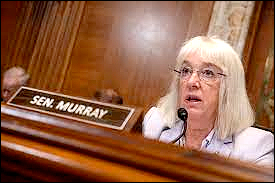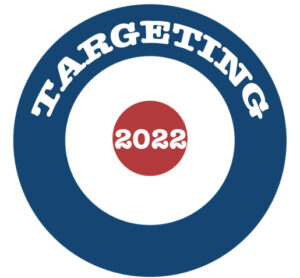By Jim Ellis — Monday, July 31, 2023
Senate
Michigan: Rep. McClain Declines Senate Run — Two-term Michigan US Rep. Lisa McClain (R-Bruce), who represents the region commonly referred to as “the thumb” since the state’s Lower Peninsula configuration resembles a human hand, said yesterday that she will not enter the open US Senate race next year. The move presumes that she will seek re-election to the House in 2024.Rep. McClain had been mentioned from time to time but was not considered as having a serious desire to run for the Senate, so her decision to pass on the statewide run is not surprising. As the Republican Conference Secretary, Rep. McClain is part of the GOP majority leadership team.
House
CO-3: Dem Primary Forming to Challenge Rep. Boebert — Grand Junction Mayor Mary Anna Stout (D) announced late last week that she will run for the US House. Her main opponent in the Democratic primary is 2022 nominee Adam Frisch, who only lost to Rep. Lauren Boebert (R-Silt) by 546 votes in the closest US House race in the country. Beginning this campaign, Frisch has already raised a whopping $2.6 million in the 2nd Quarter and has $2.5 million cash-on-hand, or more than $1 million over what Rep. Boebert has in her account ($1.4 million). Three other minor Democrats are also announced candidates.
There are two options for qualifying for the Colorado ballot. First, is through garnering the requisite number of delegate votes at the Democratic Party district convention, or second, through obtaining petition signatures from registered voters in the particular district. It is a virtual certainty that Frisch will dominate the convention, so the others will likely choose the petition route. The CO-3 race will probably be the top Democratic conversion target in the country next year despite a R+15 rating from the FiveThirtyEight data organization.
NH-1: Rep. Pappas Draws GOP Opponent — Former New Hampshire Executive Councilor and ex-state Sen. Russell Prescott (R) announced that he will again enter the 1st District congressional race. He ran in 2022 but finished a poor fourth in the Republican primary with only 10 percent of the vote. Prescott and incumbent Rep. Chris Pappas (D-Manchester) are well known to each other. They served together on the state’s Executive Council, the position Pappas held before his election to the House in 2018.
Prior to redistricting, the 1st District had defeated more incumbents than any seat in the country during the past decade. Therefore, the campaigns here are always competitive. Rep. Pappas won a surprisingly strong 54-46 percent victory last November over former Trump Assistant Press Secretary Karoline Leavitt (R).
RI-1: Board of Elections Reverses Course — After voting 5-1 to review the signature petition process for Lt. Gov. Sabina Matos’ (D) special election congressional campaign, the Board members reversed themselves 24 hours later. Their stated reasoning is that the local boards had already done the job of culling through the names and referring those they found irregular to law enforcement.
The reversal sets the stage for Matos being approved for the ballot. Early polling casts her as the race leader. A dozen Democrats have already been awarded a ballot position. The special Democratic primary to replace resigned Rep. David Cicilline (D-Providence) is scheduled for Sept. 5. The special general will be Nov. 7, but winning the Democratic primary will prove tantamount to claiming the seat.









